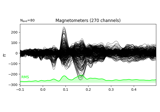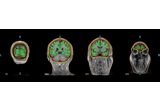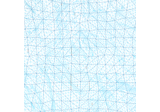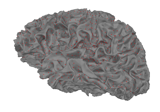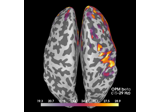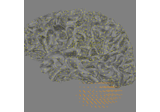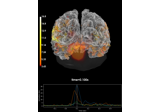mne.setup_source_space¶
- mne.setup_source_space(subject, spacing='oct6', surface='white', subjects_dir=None, add_dist=True, n_jobs=1, verbose=None)[source]¶
Set up bilateral hemisphere surface-based source space with subsampling.
- Parameters
- subject
str The FreeSurfer subject name.
- spacing
str The spacing to use. Can be
'ico#'for a recursively subdivided icosahedron,'oct#'for a recursively subdivided octahedron,'all'for all points, or an integer to use approximate distance-based spacing (in mm).Changed in version 0.18: Support for integers for distance-based spacing.
- surface
str The surface to use.
- subjects_dir
str|pathlib.Path|None The path to the directory containing the FreeSurfer subjects reconstructions. If
None, defaults to theSUBJECTS_DIRenvironment variable.- add_distbool |
str Add distance and patch information to the source space. This takes some time so precomputing it is recommended. Can also be ‘patch’ to only compute patch information (requires SciPy 1.3+).
Changed in version 0.20: Support for add_dist=’patch’.
- n_jobs
int The number of jobs to run in parallel (default
1). If-1, it is set to the number of CPU cores. Requires thejoblibpackage. Ignored ifadd_dist=='patch'.- verbosebool |
str|int|None Control verbosity of the logging output. If
None, use the default verbosity level. See the logging documentation andmne.verbose()for details. Should only be passed as a keyword argument.
- subject
- Returns
- src
SourceSpaces The source space for each hemisphere.
- src
See also
